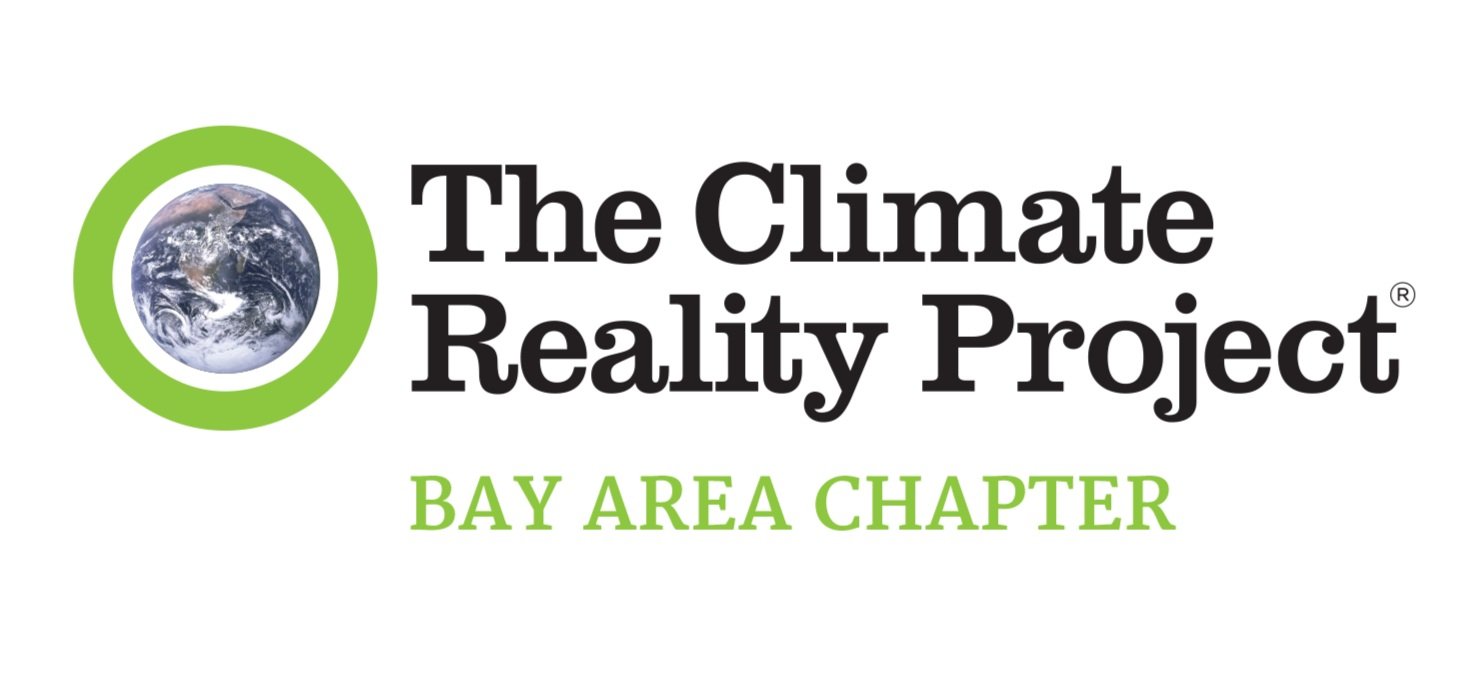“Everyday Climate Champions” Podcast Episode 6: Giving Eco-Friendly Gifts
Written by Mina Rios
Learn more about Climate Reality Bay Area’s podcast, Everyday Climate Champions here.
“In three and a half weeks we diverted almost 250 plastic bottles from the landfill due to refills at Simple. And there's a lot of other shops like mine throughout the country and even in the Bay Area.”
Listen to Episode 6: here
Transcript: here
Guests: Abbe Clemons is the founder and owner of the San Francisco based eco-market, Simple. Clemons comes from a zero-waste family and has worked in environmental and urban planning for more than 15 years.
Host: Ellisa Feinstein
Summary:
The neighborhood eco-market Simple in San Francisco’s Cole Valley is a community gathering place for exploration, education, and sustainable goods. Founder Abbe Clemons offers tips on sustainable gift-giving and discusses a range of zero-waste products available, many of which are locally sourced. All products at Simple have also been carefully vetted to ensure a closed-loop economic model.
Why This Matters:
Zero Waste Stores are becoming increasingly popular in neighborhoods everywhere, around the Bay Area and beyond, attracting a growing number of households who wish to live more sustainably.
These neighborhood stores serve as community gathering places where dialogue and education are ongoing, while households fully transition to an eco-friendly lifestyle.
As more households transition to sustainable products and Zero Waste Stores, traditional shopping outlets - whose profits depend on unsustainable corporate brands - will eventually have to adapt to consumer demand for more sustainable alternatives.
Key Takeaways
Abbe Clemons observed that San Francisco was without a Zero Waste Store a decade ago. During the pandemic, Clemons increased her sustainable-living efforts and encouraged others to do the same.
In September 2022, Clemons opened Simple eco-market in Cole Valley, just outside the Haight.
To lead by example and avoid new material waste, Clemons ensured that all store furnishings were used and repurposed by utilizing free sources like Craigslist, Facebook Marketplace, Buy Nothing, and neighborhood giveaways.
Simple offers a range of zero waste and bulk items for the home and body from mostly local makers.
Simple supports a closed-loop economic model: a no-waste cycle that reuses materials to produce something else and avoids unnecessary packaging that ends up in landfill.
Clemons says it’s challenging to find local makers who provide a low-waste product.
Simple ensures that no business partners practice greenwashing, a tactic used to only appear as if a product is environmentally friendly.
Finding gifts that are both meaningful and eco-friendly can be challenging.
One factor that determines whether a product is sustainable is the packaging. Packaging should be biodegradable, or able to be reused or repurposed.
Since most plastic doesn’t get recycled, it’s best to avoid it altogether. Some companies are currently exploring ways to reuse plastic bags.
Most gift wrap is actually not recyclable. Specifically, metallic wrapping paper and wrap with glitter or other non-paper materials cannot be recycled. Alternatives include bandanas or leftover fabric with twine. A produce bag or bread bag can serve as both wrapping and a gift to add to the gift inside.
2.3 million pounds of wrapping paper ends up in the landfill each year (according to Earth911’s statistics in 2018)
Gifting homemade items like baking ingredients or craft kits in mason jars, or an experience such as membership to a museum, are good zero-waste ideas, as are some gifts from the local thrift store.
Simple offers useful gifts such as candles, diffusers, wine totes, and bath salts packaged in reusable glass containers.
Favorite gifts are screen-printed mugs of San Francisco icons and candles repurposed from old wine bottles by a company in Truckee. Items are packaged in cardboard for easy composting.
Self-care products make good gifts for special occasions. Clemons recommends creating a bundle with shower steamers, reusable makeup removers, or facial bars with a konjac sponge.
Sustainable gifts for children include colored pencils made from old newspapers and handmade journals bound with recycled paper.
Simple offers everyday products such as butterfly razors packaged in burlap, and an extensive selection of refillable products. All refill containers are sanitized before refilling.
Simple leads community-building efforts through workshops and popups featuring guest speakers on various environmental issues. While the environmental impact of Zero Waste Stores like Simple are incremental, the business model is vitally important to helping steer communities toward sustainable living.
When people slow down and think about how they spend their time and money, they have the capacity to lead a better, more sustainable lifestyle.
Embracing sustainable living needs to be a natural and convenient alternative, not a forced lifestyle change.
When transitioning to sustainable products, it’s important to avoid passing judgment on others, and find ways to enjoy and appreciate the change.
How to Take Action
Find a Zero Waste Market near you. Zero Waste Grocers and Refill Stores, in the Bay Area and beyond, are listed on Litterless.com. Stores yet to be listed can be added here.
Shop Zero Waste Stores. Swapping out name brand products to refillable dishwashing detergent or laundry detergent is an easy first transition.
Reuse and repurpose materials whenever possible.
Bookmark important Zero Waste resources online (direct websites and social media) and share with friends and family.
Related Websites:
Holiday Tip: Don’t Recycle Gift Wrap: An article about how gift wrap is often not the way to go
Simple: Abbe Clemons’ eco-market based in San Francisco
Buy Nothing: A nationwide movement of local communities everywhere allowing neighbors to share and reuse products
Craigslist (Bay Area): A marketplace for everything, including free items
Contact Us: Do you know a Bay Area-based Everyday Climate Champion? We’d love to interview them! Or just want to share a comment or hear about new episodes?
Get in touch: crba.eccpodcast@gmail.com
Get notified of new episodes HERE
Podcast Production Team: Executive Producer: Dalya Massachi; Sound Designers: Kayla Anchell, Trevor Skerbe; Co-Hosts/Researchers: George Dy, Ellisa Feinstein, Isabella Genereaux, Sean Mendelson, Hasini Parepalli, Lex Schrader, Alex Williams; Logo Designer: Gabriela Vargas
